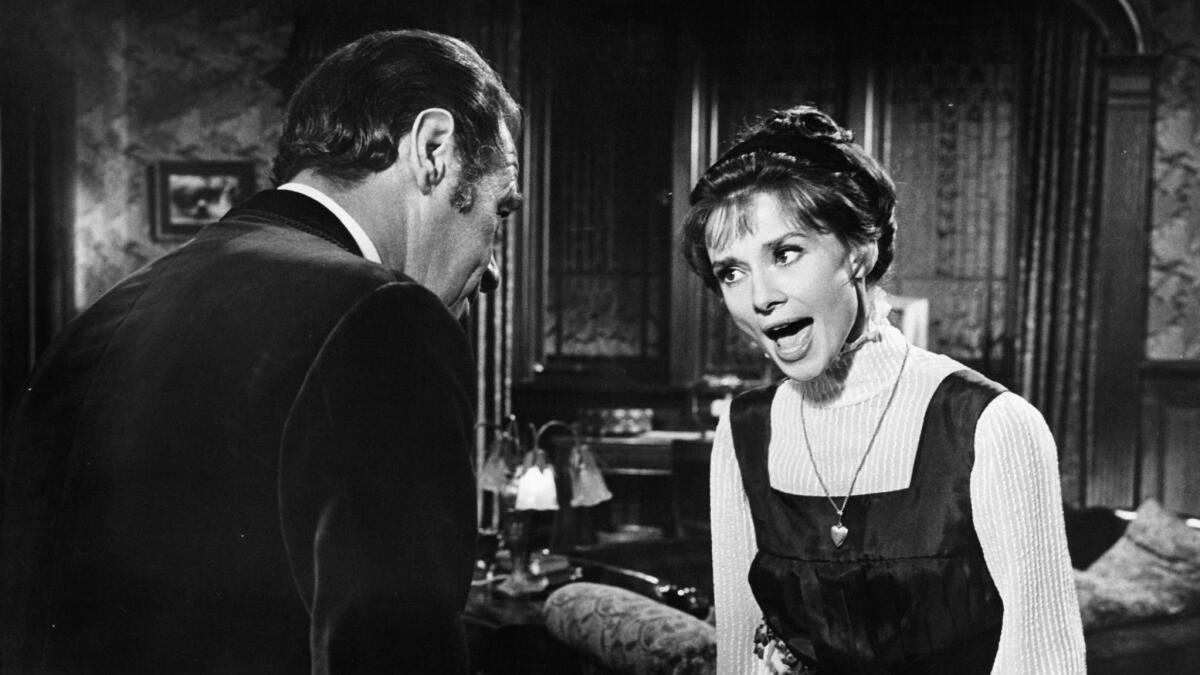What can the past tell us about what film will win the best picture Oscar?
- Share via
The Oscar nominations are in, and the discussions are heated. The snubs! The surprises! The algorithms! With no clear front-runner in sight, The Envelope looks to previous best picture winners to see if they can shed any light on what current film might speak most clearly to today’s Academy of Motion Picture Arts and Sciences voters. It’s a chance to consider indelible themes through the years and to weigh each film’s odds from a historical perspective. Just don’t put any money down in Vegas based on this assessment.
“BLACK PANTHER” / “LORD OF THE RINGS: RETURN OF THE KING”
The Marvel Comics-turned-film behemoth was more than a hit; it was a cultural milestone. The closest that a past winner comes to the majesty, the effects and the heroic storyline is 2003’s “Lord of the Rings: Return of the King.” Both also garnered nods for costume design, production design, sound mixing and original score, all of which “Return of the King” won.
“BLACKKKLANSMAN” / “THE STING”
This tragicomic story of a clever pair looking for justice by outwitting an established, not-so-bright evildoer and his terrorizing henchmen recalls 1973’s winner, “The Sting.” Would that racism could be as easily dispatched as Robert Shaw’s crime boss was in the earlier picture.
“BOHEMIAN RHAPSODY” / “THE GREAT ZIEGFELD”
Great singing! Great moves! Great costumes! Great Scott, the biopic of the great Freddie Mercury and his band Queen has a forebear in 1936 winner “The Great Ziegfeld,” about Flo Ziegfeld Jr., the premier showman of his time. It’s unclear which artist appreciated lavish costumes more.
“THE FAVOURITE” / “ALL ABOUT EVE”
Oddly, there aren’t any previous winners about two women backstabbing over the affections and control of a queen. But two women battling for power? With one of them a bona fide (film) queen? That would be “All About Eve,” 1950’s savagely funny changing of the guard in the world of theater. And, really, what’s more theatrical than a castle full of courtesans?
“GREEN BOOK” / “DRIVING MISS DAISY”
An odd couple — one white, one black — drive around the segregated South in a nice car and forge an unlikely bond that transcends the racism of the time and uplifts them both. As noted in many reviews, “Green Book” harks back to 1989’s “Driving Miss Daisy” almost to a T-Bird.
“ROMA” / “HOW GREEN WAS MY VALLEY”
To find a film with comparable elements to “Roma’s” working-class woman living in a city roiled by turmoil, we turn back to a coal-mining town in Wales — 1941’s winner, “How Green Was My Valley.” Like “Roma,” the older film centers on a family struggling through romantic strife, class clashes and the crushing effects of protest. Filmed in black and white, both films earned 10 nods from the academy.

“A STAR IS BORN” / “IT HAPPENED ONE NIGHT” / “THE LOST WEEKEND” / “MY FAIR LADY”
None of the previous remakes won. Only the original 1937 version was nominated. So we have to mash things up a bit to match the charisma of “Star” stars Lady Gaga and Bradley Cooper, and the bittersweet nature of its story. First up: the hopelessly romantic, funny, charming “It Happened One Night” from 1934, which hits with the blinding wattage of Claudette Colbert and Clark Gable. Then throw in a long pull from the painful, liquor-soaked 1945 winner “The Lost Weekend.” And why not throw in a pinch of “My Fair Lady” (1964) for transformative measure? Come on, Gaga, move your bloomin’ arse!
“VICE” / “THE GODFATHER”
For a sprawling epic with an oddly sympathetic antihero, look no further than 1972’s winner, “The Godfather.” (Or its winning 1975 sequel, for that matter.) Each is led by brilliant characterizations of terrible people, and somehow the audience ends up, if not exactly rooting for the dark power in the lead, at least understanding his motivation.
FULL COVERAGE: Get the latest on awards season from The Envelope »
More to Read
Sign up for The Envelope
Get exclusive awards season news, in-depth interviews and columnist Glenn Whipp’s must-read analysis straight to your inbox.
You may occasionally receive promotional content from the Los Angeles Times.










